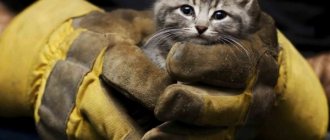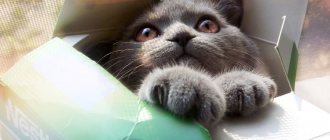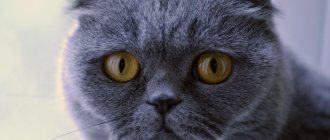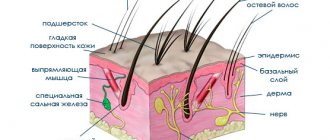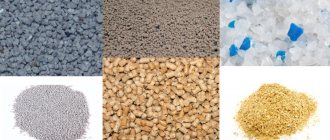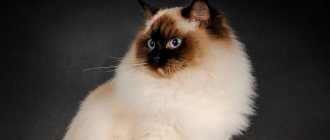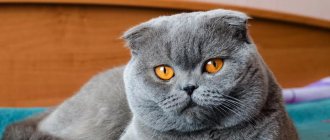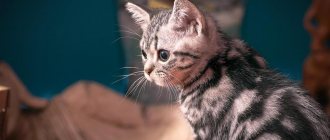Owners of cats very often call them members of their family and treat them like their children: they bathe them, put them to bed, buy them toys and clothes. Animals also eat from the table of their owners, who share their favorite dishes with them, pampering them, so to speak.
And cats indulge their owners in this; as soon as they come into the kitchen, the cat is right there, looking with pitiful eyes and meowing. How can he not throw something? It seems like there is nothing bad. Few people at this moment think about what they should not feed their cat, but not everything is good for pets.
Should I give my cat a treat?
Some foods are especially pleasant to the human taste buds. If they are tasty for the owner, then he thinks that the cat will like them too. When an animal does not want to eat certain foods, the owner develops this eating habit in him. But there is something you should not feed cats and kittens. People's favorite treats for their pets can be dangerous. People can eat something that is tasty, but not at all healthy; an animal usually does not eat such foods, but it is dependent on its owner and eats what is poured into its bowl.
Treating Caffeine Toxicity in Pets
Depending on how quickly you can bring your pet in, your veterinarian may induce vomiting to prevent further caffeine absorption, Meeks says.
Both experts advise against trying to induce vomiting yourself. “If done incorrectly, it can lead to aspiration pneumonia,” Meeks says. “It’s much safer to do it in a clinical setting.”
If your veterinarian can't induce vomiting in time, Mazzaferro says, he or she may give your pet intravenous fluids to help flush the caffeine out of the body. Your veterinarian may also prescribe medications to control abnormal heart rhythms, slow dangerously fast heartbeats, and control tremors and seizures.
It takes 24 to 48 hours for caffeine to pass through an animal's body, Meeks said. If they receive prompt treatment, most pets will survive.
Chocolate is not a treat for cats
Even an adult can eat a couple of pieces of chocolate a day so as not to harm his health, and no more. And a cat that eats what it catches in the wild would never get chocolate. The product contains theobromine and caffeine - these substances stimulate the nervous and cardiovascular systems. This delicious chocolate can cause vomiting, abnormal heart rhythms, extreme thirst, anxiety, seizures, high fever and death. All this happens because intoxication begins in the body, and the cat cannot always cope with it.
So why?
How is it that this myth still exists? Well, for the same reason why Kopi Luwak made it into the movies in the first place.
This is a ready-made headline for the yellow press. It’s too funny not to chat about at the water cooler at work or share on your favorite social network.
In some ways, it's not much different from the stories of Einstein and ostriches.
How can we put an end to this stupid idea? First, you can go ahead and share this story on your social networks. Some people might be upset by this news, but if it's necessary to save animals and improve the quality of coffee tourism in Indonesia, I'll get through it somehow.
about the author
Hi, I'm Asser Christensen from Denmark, founder and editor of THE COFFEE CHRONICLER. For as long as I can remember, I have always been crazy about coffee. Today I am a licensed Q-grader and professional coffee writer.
The cat is a real man
Some men zealously defend the rights of cats living in their family. As if this concerns their personal freedom. They are categorically against having a cat castrated, and also believe that there is nothing wrong with a cat drinking. And they even like to show their friends how the cat consumes the alcohol offered to him. At the same time, there is not even a thought that the animal could be poisoned by the drink offered to it. Meanwhile, cats are extremely sensitive to alcohol, their coordination is impaired, they lose orientation and fall into a stupor. From the outside it may look funny, but it causes irreparable harm to the animal.
How to keep your pets safe
One of the reasons cats and dogs are so sensitive to caffeine is their indiscriminate eating habits, Mazzaferro says. They tend to consume a lot of anything that contains a toxin at one time.
“Because dogs and cats rarely drink caffeinated beverages, they are commonly exposed to over-the-counter stimulants such as Vivarin, diet pills Dexatrim, and Excedrin,” she says. (Vivarin and Dexatrim contain about 200 milligrams of caffeine per tablet, while Excedrin contains 65 milligrams per tablet, as well as other potentially dangerous drugs.)
A cat laps milk from a saucer and then suffers from diarrhea
If you don’t know what you can’t feed a fold-eared cat, then you will be surprised that these purebred pets, like many non-pedigreed ones, should not be given milk. Pedigree animals are much more likely to suffer from intestinal disorders and disorders of the intestinal tract. Any animal can be lactose intolerant, and a cat with sensitive digestion may suffer from diarrhea. Although until a certain time the animal can drink milk without any complications.
Cats can be given fermented milk products: cottage cheese and kefir, but not all animals like them. Cream and sour cream should be removed from the diet. If the animal tolerates lactose well, then once a week a small amount of cow's milk at room temperature is acceptable.
You shouldn’t give yoghurts and curds, they contain a lot of additives that are unnecessary for the cat’s body.
But how does caffeine affect our pets?
It turns out that our pets react in much the same way as we do. Caffeine bothers them. They are nervous and their hearts are racing.
But since our pets weigh so much less than we do, it only takes a relatively small amount of caffeine to cause a big problem that could potentially lead to costly hospitalization or even death.
Here's everything you need to know about caffeine toxicity to dogs and cats, what to do if you suspect your pet has consumed caffeine, and how to keep your furry companions safe.
Healthy vegetables and fruits
Fruits and vegetables are good for people, only if they are grown at home and not treated with chemicals. And some of them should not be given to animals at all. Avocado, which is beneficial for women, is contraindicated for cats, as are cherries, garlic, grapes, apricots, mushrooms, onions and raisins.
There are still some vegetables that do not cause disruption to the digestive organs - these are zucchini, carrots and broccoli. You can also give some green beans. But all this needs to be boiled; it is not only difficult for animals to eat them raw, but also to digest them. What should you not feed a pregnant cat? Everything is the same as for a non-pregnant woman, because if she starts having digestive problems and has to be treated, the medications may have a bad effect on the kittens she is carrying.
Signs that your pet has consumed caffeine
According to Mazzaferro, dogs and cats may show clinical signs of caffeine toxicity within 30 to 60 minutes of consumption.
Symptoms to watch for include restlessness, agitation, hyperactivity, vomiting and shortness of breath, she said. As toxicity progresses, they may also experience tremors and seizures.
You can even feel your pet's heart beating under his or her fur, Meeks says.
If your pet develops an extremely fast or irregular heartbeat, it could lead to death, she said. Clinical signs may last from six to 12 hours or more, depending on the dose of caffeine taken.
When comparing a typical 8 ounce of popular caffeinated beverages, brewed coffee contains approximately 95 to 165 milligrams of caffeine, compared to brewed black tea at 25 to 48 milligrams, cola soda at 24 to 46 milligrams, and energy drink at 27. up to 48 milligrams. 164 milligrams, according to the Mayo Clinic.
Meanwhile, one caffeine tablet usually contains 200 mg of the stimulant. Ingestion of 14 milligrams of caffeine per 400 grams of body weight can cause signs of anxiety and agitation in dogs and cats, while higher doses (23-27 milligrams per 2 kg of body weight) can cause cardiotoxicity, Mazzaferro says. In other words, one caffeine tablet contains enough medication to be very dangerous for an eight-pound dog or cat.
Meat diet
It is obvious that in the wild, cats eat mainly meat that they obtain for themselves. Let's figure out what you can't feed British and regular cats? Just raw meat. What is sold on the market is the meat of animals pumped with antibiotics and hormones. 70% of the product is contaminated with helminths; the meat contains pathogens that are dangerous to health; they can be active even after weeks of freezing.
A cat can even be poisoned by a mouse that it caught itself, because it might have eaten the poison. Before giving meat to pets, it must be boiled. You can give rabbit, chicken, beef and sometimes game. The diet must include offal, but not liver. Raw liver causes diarrhea, while boiled liver, on the contrary, makes defecation difficult.
The meat needs to be cut into large pieces and boiled for up to 10 minutes; if you cook for a very long time, the value of the product will decrease.
Is caffeine safe for pets?
“Cats and dogs should not consume caffeine,” says Dr. Elisa Mazzaferro, an associate professor in the Department of Emergency Medicine at Cornell University College of Veterinary Medicine in Ithaca, New York.
If pets consume caffeine, it can take as little as 30 minutes to an hour to reach peak concentrations in their bloodstream and cause signs of clinical toxicity, she said.
“Symptoms will depend on the size of the animal and the amount of caffeine consumed,” adds Dr. Katie Meeks, board-certified internal medicine specialist and medical director of BluePearl Veterinary Partners in Tampa, Florida.
“Coca-Cola has less caffeine than caffeine tablets,” she says. “And a Chihuahua can tolerate a different amount than a German Shepherd.”
Call your veterinarian immediately if you think your pet has ingested caffeine. You can also call the Pet Poison Hotline or ASPCA Animal Poison Control, Mazzaferro says.
Prepare an estimate of your pet's weight and the amount of caffeine he may have been exposed to so experts can determine his potential risk.
Fish is a delicious delicacy
People simply need to eat fish, but cats in the wild don’t eat it at all; they have nowhere to get it. Fish contains a lot of protein and minerals. If there is a lot of it in a cat’s diet, he will suffer from urolithiasis. If desired, you can give fish once a week in small quantities and only boiled. You need to take sea fish without entrails and bones. There are a lot of helminths in river fish, and there is a high probability that the animal will become infected with them.
If you don’t know what to feed Scottish cats, then it’s better to stick to dry food. Manufacturers from different companies prepare balanced dry food specifically for these breeds. They have everything you need and daily requirements are calculated. If the animal is “natural”, then it is unlikely that the owners will be able to make the animal’s diet balanced.
Smoked meats and pickles
Sometimes animals happily eat canned tomatoes and cucumbers. This does not mean that they are safe for them, it only indicates that the cat is missing something.
Owners, out of habit, can sweep all the remains of their meal into the cat's bowl, but the animal is not allowed any smoked, fried, or canned food. Sausages are also not suitable for them. All the food that people prepare for themselves includes spices and salt, but cats do not need this. This is not a complete list of what you should not feed your cat.
Pasta lovers
Sometimes cats are noticed to have an exorbitant love for pasta and other flour products: rolls, fresh bread and other provocateurs of constipation, colitis and obesity. What should you not feed a sterilized cat? Exactly these products. Neutered animals are more prone to obesity due to hormonal imbalance. Manufacturers make food specifically for them with weight control, they have fewer calories. If you want to keep your animal on natural food, then it is better to make your choice in favor of cereals. Buckwheat and rice are ideal for this; you need to add meat to your diet.
Difficult to digest are: millet, semolina, corn grits and rolled oats.
Crunchy treats
If your cat likes to crunch, then it is better to buy her treats at pet stores. Heads, tails and paws are not only useless food, but also dangerous. Such products injure the intestines and lead to obstruction.
There are also modern delicacies in the form of chips and crackers. The manufacturer selects flavors and flavor enhancers so skillfully that even an intelligent creature, a cat, cannot resist eating it. Don't know what you shouldn't feed your cat? Know: chips and crackers! They contain so much chemistry that the liver and pancreas may simply not be able to cope with them.
Nuts, which people love so much, cannot be digested in the animal’s intestines; among other things, they can cause severe allergies, swelling and respiratory arrest. Special treats are sold for animals in the form of dried entrails and vein bones.
What to pamper your pets with?
It is customary for people to treat each other with sweets, treat children, give them in bags as gratitude, and treat themselves to sweets when they are in a bad mood. These stereotypes are also transferred to animals. If you want to treat your pet with something, then this delicacy comes to mind. Some animals are completely indifferent to all such sweets, but there are also sweet tooths. What should you not feed your cat? That's right - sweets! Animals also suffer from diabetes, and such treats lead to disruption of the digestive tract and diseases of the internal organs.
All this is an extra burden on the liver. Fruits are also high in sugar, and raisins and grapes even cause intoxication. What should you not feed Scottish cats? All these harmful products. They are harmful to both purebred and outbred animals.
If you still want to please your pets, then go to the pet store, you will find a lot of treats, cookies and other treats that your cat will certainly like.
Manufacturers offer treats for kittens, for adult animals, for aging individuals and separately for purebred animals. Why invent something that experts have already come up with long ago. Cats are not such gourmets as people; they eat to live, and do not live to eat.
What happens if cats drink coffee?
I was drinking coffee the other day and accidentally spilled some on the floor (a couple of drops).
My cat licked them. I don't really think it's a big deal because it was only two drops, but could anything happen to cats if they drink (relatively) large amounts of coffee?
According to petpoisonhelpline.com, caffeine poisoning is "[g]moderate to severe/life-threatening" but "[. ] cats seem to be more sensitive to the effects of caffeine than humans", "1-2 coffees, teas or sodas do not contain enough caffeine to cause poisoning in most pets [. ] ".
So you should be safe with the current situation, but please be careful!
Caffeine is very harmful to cats and dogs. Don't let your cats drink coffee, soda, tea, etc.
One tiny dose won't kill them, but you can cause organ damage every time. The HCCUA health website states that cats will suffer heart and nervous system damage from caffeine. I believe it will also damage the liver, kidneys and gastrointestinal tract.
Plants produce caffeine to kill any creatures that eat the plants. Alkaloids (caffeine is an alkaloid) are designed to kill anything that eats them, not just insects. Humans and other plant-eating animals have evolved defenses against common alkaloids, so caffeine does not affect humans. Cats and dogs do not have such protection.
Websearch says the LD50 (an overdose that would kill half the animals in the study) for caffeine is about 70 mg per 1 pound of body weight (150 mg/kg body weight). For example, instant coffee contains more than 60 mg of caffeine per teaspoon. Thus, a lethal dose of caffeine for a 15 lb (6.8 kg) dog would be 17 teaspoons of instant coffee. Stronger coffees such as Turkish coffee, percolated coffee and energy drinks would take much less to become toxic to a dog. The LD50 in a cat is 200 mg/kg. Thus, cats are less sensitive to body weight, but generally weigh less.
Theobromine LD50 is about 1000 mg/kg in humans. But for cats it is 200 mg/kg, and for dogs it is 300 mg/kg. This is why cats are more sensitive to tea and chocolate than dogs.
However, cats are much less likely to cause significant amounts of harm than dogs. They don't respond to sweetness, among other reasons.
So, you don't want to actively feed your cat these chemicals. But a few drops or a few chocolate flakes are unlikely to do any harm.
The oldest cat ever recorded lived partly on coffee with heavy cream. So, it appears that caffeine may not be entirely harmful to cats. I wonder how much coffee they gave the cat. Creme Puff (the cat) lived to be 38 years old, according to Wikipedia and other sources.
Source

